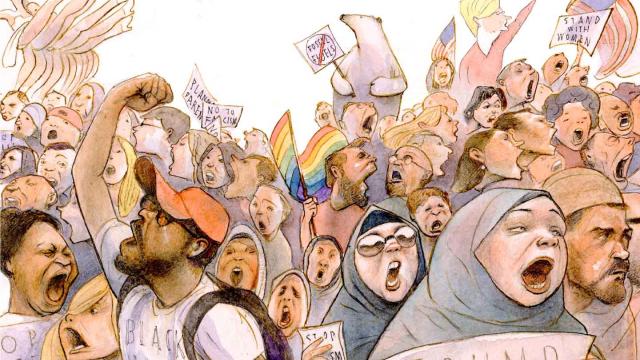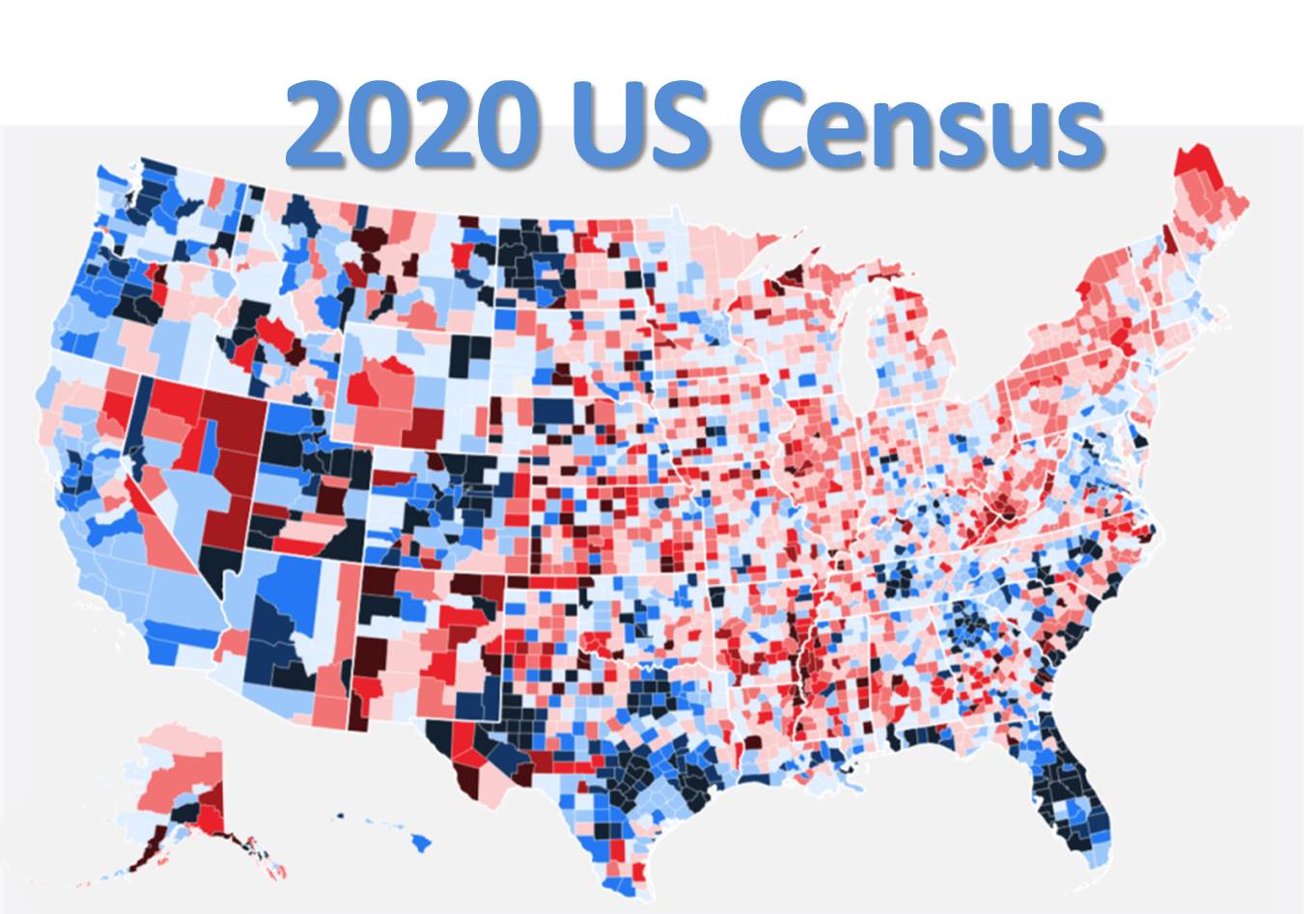
The decision by the Trump administration to end its attempt to include a question about U.S. citizenship on the 2020 census was seen by many liberals and progressives as a victory. While this is true at some level, the battle over the census is not over, not by a longshot.
Trump made this clear in his statement, indicating that while he was abandoning the effort to add the citizenship question to the census by executive order, he would look for other ways to “get the information” about citizenship. Fortunately, grassroots organizations have recognized the bad faith of the administration and are already moving to protect the census.
The census in broader context
The census serves as the basis for re-apportioning seats in the U.S. Congress every 10 years as well as for the distribution of social spending, whether for housing, education, or other needs. Because of its significant political implications for the balance of power in the country, the Trump White House and Republicans view it as part of a broader strategy including gerrymandering and voter suppression to maintain power, despite their shrinking electoral base.
It is therefore likely that they will continue attempting to subvert the census just as they have fought hard to maintain gerrymandered districts in North Carolina and Wisconsin – even after state courts ruled they must be changed – as well as overturn the broadly popular 2018 referendum result in Florida that allows ex-felons to vote. Republicans know that if elections are determined by the participation of high numbers of black and brown voters, they will suffer massive defeats. So they have no choice but to be “all in” with efforts to minimize the representation of minority communities.
But the census question is also central to Donald Trump’s unique brand of politics based on outright bigotry and xenophobia. In his view and that of advisors and allies like Stephen Miller and Steve Bannon, minimizing immigration from the global South, especially Mexico and Central America, meshes with the broader Republican attempt to undermine the democratic character of U.S. politics. For the Trump administration, the census is all about enhancing Republican electoral power, confronting pro-immigration blue states, and “making America white again.”
Trump himself has begun to look for ways to gather citizenship and immigrant population data for nefarious electoral purposes. Soon after he “gave up” on attempts to get the citizenship question on the census, he signed an executive order directing the Census Bureau to collect citizenship data from other records at the Bureau. The reason, as explained by Ari Berman for Mother Jones, is that “some states may want to draw state and local legislative districts based on the voter-eligible population” as opposed to the entire population.
Drawing congressional and state legislative districts according to eligible voters would benefit Republican-dominated areas by diminishing the demographic weight of Democratic areas, which, proportionally, have more immigrants and more children – people who can’t vote.
Trump’s belligerence is also having a direct effect on the census. Eliza Carney reports that the census was already “in trouble,” before Trump announced his intention to add the citizenship question, because of funding and staffing shortfalls as well as the plan to move much of it online, making it more difficult for low income or otherwise marginalized residents to respond. These problems have prompted the General Accounting Office (GAO) to classify the census as a “high risk” program.
The president’s tweets and statements along with the legal wrangling have sowed confusion and caused alarm in communities already disinclined to trust the government. This fear is only magnified by Immigration and Customs Enforcement (ICE) raids – real and threatened – across the country; bellicose rhetoric from Trump and his allies, and the warehousing of tens of thousands of asylum seekers from Latin America in concentration camps. It has often [been remarked] that with Trump “cruelty is the point." But, that cruelty is often in the service of intimidation that has political objectives.
In a feature for The New York Times, “When it Comes to the Census, the Damage among Immigrants Is already Done," Jose A. Del Real interviewed people in one Latinx community in Los Angeles to get a street-level view of the census. He found both confusion and a lack of trust. On the one hand, people are being told to keep their doors closed to ICE agents, while also hearing that they should open their doors to census workers.
Overall, he found that people were generally uncomfortable providing information to the government and that some had already decided not to cooperate with the census count. He concludes that “the fear engendered by the administration’s immigration policies will make the job of census workers difficult in primarily immigrant neighborhoods, regardless of whether or not the citizenship question is added.”
California state officials are very aware of these problems. David Zingala, an aid to Governor Gavin Newsom, told Del Real that the state was worried that the undercount “could be in the millions.” Maricela Rodriguez, who works in the governor’s office on civic engagement, asserted that the “damage in terms of creating fear around the census has been done.”
The Newsom administration is responding with a commitment to spend up to $187 million for community engagement and other programs, several times what it has spent previously. In Newsom’s words, “if you don’t participate in the census, Trump wins.”
Mobilizing for an accurate census
Organizations across the country have already begun working in communities to ensure an accurate count. In her article, “For An Accurate Census, Look to the Grassroots,” Carney writes that an “unprecedented coalition of national, local, and community groups is mobilizing to ensure that the decennial census counts all U.S. residents, citizens or not.” This coalition of some 150 groups is being led by the Leadership Conference on Civil and Human Rights’ Census Counts Campaign, and is being funded in part by the Ford, Kellogg, and Open Society foundations.
Census Counts provides educational materials and toolkits for grassroots organizations which are already working in communities to help people understand that they have a stake in the census. An accurate census will help ensure that adequate public funding is available for schools, health care and other vital services. Local organizations will be helping people fill out their census forms and – given that the census is moving online – are pushing to help residents get access to computers in schools and libraries. For their part, civil rights advocates will be closely watching how the census is rolled out and administered to make sure that the Trump administration follows the rules.
Other leading organizations include Asian Americans Advancing Justice, which has launched a Count Us in 2020 campaign that provides fact sheets and other information in 15 languages, the NALEO Education Fund, and the Count All Kids campaign by the Partnership for America’s Children.
Given the relative lack of progressive power in Washington, the struggle over the 2020 census, like many other issues, will be fought on America’s streets. If enough people and resources can be organized to push back strongly against the administration’s sabotage efforts, the chances for a relatively accurate census count may be good. But it will take massive efforts at the national, state, and community levels to be successful.
Given the amount of resources and effort needed, protecting the census may appear to be just one more way that the Trump administration and its allies force progressives to expend limited resources. But these resources will be well spent. The census could have a decisive effect on the balance of power in Congress and in state governments. And, if the grassroots can come together to protect the census, the social power developed is likely to boost other progressive campaigns from teacher strikes to immigration reform to the mobilization of minority voters for the 2020 elections.












